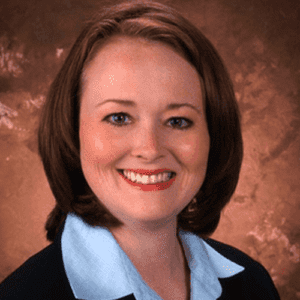
The purpose of this blog is to stimulate thought and discussion about important issues in healthcare. Opinions expressed are those of the author and do not necessarily express the views of CMDA. We encourage you to join the conversation on our website and share your experience, insight and expertise. CMDA has a rigorous and representative process in formulating official positions, which are largely limited to bioethical areas.
Ethics, Sexuality and Truth
January 21, 2019
by Autumn Dawn Galbreath, MD, MBA
I’m listening to a talk on ethics and sexuality. It’s important stuff, and I’m so grateful for people like this speaker who study it and formulate cogent, effective arguments about the secular worldviews that affect our culture. I do agree with her, and I do believe the truths she is speaking. But the audience is composed 100 percent of Christians. We’re all here together agreeing with our speaker. It’s good that we’re being educated, and it’s good to galvanize ourselves with a clear worldview and a clear understanding of the worldview we are up against in secular society. The problem is we often leave these sorts of gatherings with a message to carry into the world, a message about sexuality or about abortion or about politics. Those messages are good, and political and intellectual grappling is important. But I often feel we’ve got the cart before the horse, so to speak. As Christians, are we called to convince others of the truth? Or are we called to love them as God loves them?
Now, don’t get me wrong—I know God’s love encompasses truth, and I know God does not extend a wishy-washy, tolerant sort of “love” that simply affirms people in their sinful beliefs. And I’m not suggesting we should extend that kind of “love,” which, in reality, is not love at all but a lazy substitute for actually seeking the good of another. What I am suggesting is that non-Christians are rarely argued into becoming Christ-followers. People become Christ-followers through experiencing the irresistible love of Christ. Peruse the Gospels with an eye toward how Christ interacts with those He encounters.
As He speaks with the woman at the well, He doesn’t offer a treatise on divorce and co-habitation. He answers her questions and offers her living water.
When a sinner (prostitute?) anoints His feet with perfume, He does not lecture her on sexual ethics or attempt to change her worldview. In fact, the only person He lectures is the Pharisee who condemns her. His lecture is not on ethics or worldview. It’s on grace.
He doesn’t give Zaccheus a sermon on theft and abuse of power. He eats a meal in his home.
Of course, Jesus gave us truth and taught us how to live godly lives, but the bulk of His time and energy in ministry was not spent on changing the law or debating others. It was spent on healing the sick, feeding the hungry and caring for those He encountered. And through those encounters, people’s lives were changed. It was only as they encountered the person and love of Christ that they ceased their sin and turned to a new way, adopting a new ethic and worldview. The ethics did not teach them the love of Christ. The love of Christ taught them the ethics.
Friend and author David Bennett tells a story in his book A War of Loves. Sitting in a pub with an acquaintance from school, he admitted to her that he was agnostic and, as a gay man, definitely did not want to believe in the Christian God. Her response? Not a list of arguments for the existence of God. Not a discussion of the ethics of homosexuality. Not even an invitation to church. Her response was a simple question: “David, have you ever experienced the love of God?” Followed shortly thereafter with, “Can I pray for you?” To me, this is living as close to the Christ of the gospel as it is possible to be. She met David where he was, loved him and prayed for him. Just like Jesus did. David’s life was changed when he experienced the love of God, which is, I believe, the only way our lives can be changed.
Ethics, worldviews and political debate are extraordinarily important. But divorced from relationship with Christ, they’re just rules—the dos and don’ts that Christianity is famous for. As such, I don’t believe they will bring others to Christ. In fact, in my experience, they often drive people away from Him. Separated from love, they are resounding gongs or clanging cymbals (1 Corinthians 13:1).
In the entire New Testament, two things are listed as evidence of authentic Christianity—and a correct worldview or sexual ethic is not among them. The God-breathed words of Scripture say that the world will know we are His disciples by our love (John 13:35) and by our fruit (Matthew 7:15-20). Even as I sit here having my worldview and sexual ethic girded, I wonder how well my love and fruit are showing. Were I to go to clinic tomorrow and discuss my worldview, I doubt a lot of lives would be changed. But if I go to clinic tomorrow and Christ’s love flows through me to those around me, I suspect they will.

